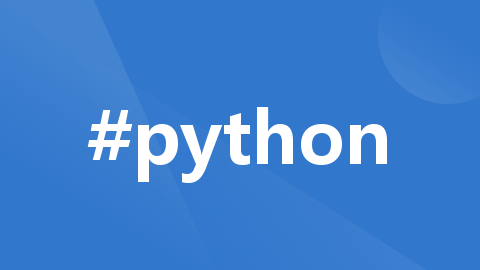
【python爬虫】设计自己的爬虫 4. 封装模拟浏览器 PlaywrightSimulate
【代码】【python爬虫】设计自己的爬虫 4. 封装模拟浏览器 PlaywrightSimulate。
·
class PlaywrightSimulate(BrowserSimulateBase):
def __init__(self):
self.browser = None
self.context = None
self.page = None
def start_browser(self, is_headless: bool = False, playwright_options: Optional[dict] = None, *args,
**kwargs) -> Any:
"""
启动浏览器。
Args:
is_headless (bool, optional): 是否启动无头模式。默认为False。
playwright_options (dict, optional): Playwright启动选项。默认为None。
*args: 可变位置参数。
**kwargs: 可变关键字参数。
Returns:
Any: 启动的浏览器实例。
"""
if playwright_options is None:
playwright_options = {}
try:
# 启动浏览器
self.browser = p.chromium.launch(headless=is_headless, **playwright_options)
# 创建新的上下文
self.context = self.browser.new_context()
return self.browser
except Exception as e:
print(f"启动浏览器时发生错误:{e}")
return None
def start_page(self, url: str):
"""
创建新页面并跳转到指定的URL。
Args:
url (str): 要跳转的URL。
Returns:
Page: 新页面的实例。
"""
try:
# 创建新页面
self.page = self.context.new_page()
# 跳转到指定的URL
self.page.goto(url)
return self.page
except Exception as e:
print(f"启动页面时发生错误:{e}")
return None
def wait_until_element(self, selector: str, timeout: Optional[int] = None, selector_type=None):
"""
等待特定元素出现在页面上。
Args:
selector (str): 元素的选择器。
timeout (int, optional): 最大等待时间,以毫秒为单位。默认为None,使用Playwright的默认超时时间。
selector_type: 保持和基类相同 无须指定(待优化)
Raises:
TimeoutError: 如果超时未找到指定的元素。
"""
try:
# 使用Playwright的wait_for_selector等待特定元素出现
self.page.wait_for_selector(selector, timeout=(timeout * 1000))
except Exception as e:
raise TimeoutError(f"等待元素 {selector} 出现时发生超时错误:{e}")
def wait_for_timeout(self, timeout: int):
"""
等待指定的时间(毫秒)。
Args:
timeout (int): 等待的时间,以毫秒为单位。
"""
try:
# 使用 Playwright 的 wait_for_timeout 等待指定的时间
self.page.wait_for_timeout(timeout)
except Exception as e:
print(f"等待时间时发生错误:{e}")
def find_elements(self, selector: str, selector_type=None) -> List[ElementHandle]:
"""
查找匹配指定选择器的所有元素。
Args:
selector (str): 元素的选择器。
selector_type (str): 选择器类型。
Returns:
List[ElementHandle]: 匹配的所有元素的列表。
"""
try:
# 使用 Playwright 的 query_selector_all 查找匹配的所有元素
elements = self.page.query_selector_all(selector)
return elements
except Exception as e:
print(f"查找元素时发生错误:{e}")
return []
def find_element(self, selector: str, selector_type=None) -> Optional[ElementHandle]:
"""
查找匹配指定选择器的第一个元素。
Args:
selector (str): 元素的选择器。
selector_type (str): 选择器类型。
Returns:
Optional[ElementHandle]: 匹配的第一个元素的 ElementHandle 对象,如果找不到则返回 None。
"""
try:
# 使用 Playwright 的 query_selector 查找匹配的第一个元素
element = self.page.query_selector(selector)
return element
except Exception as e:
print(f"查找元素时发生错误:{e}")
return None
def find_iframe_elements(self, selector: str, iframe: Frame) -> list[ElementHandle]:
"""
在指定的 iframe 中查找匹配选择器的所有元素。
Args:
selector (str): 元素的选择器。
iframe (Frame): 要在其中查找元素的 iframe。
Returns:
list[ElementHandle]: 匹配的所有元素的 ElementHandle 对象列表。
"""
try:
# 使用指定的 iframe 的 query_selector_all 方法查找匹配的所有元素
elements = iframe.query_selector_all(selector)
return elements
except Exception as e:
print(f"在 iframe 中查找元素时发生错误:{e}")
return []
def find_iframe_element(self, selector: str, iframe: Frame) -> ElementHandle | None:
"""
在指定的 iframe 中查找匹配选择器的第一个元素。
Args:
selector (str): 元素的选择器。
iframe (Frame): 要在其中查找元素的 iframe。
Returns:
ElementHandle: 匹配的第一个元素的 ElementHandle 对象,如果找不到则返回 None。
"""
try:
# 使用指定的 iframe 的 query_selector 方法查找匹配的第一个元素
element = iframe.query_selector(selector)
return element
except Exception as e:
print(f"在 iframe 中查找元素时发生错误:{e}")
return None
def send_keys(self, selector: str, input_content: str, selector_type=None):
"""
向指定的元素(通常是输入框)输入文本内容。
Args:
selector (str): 元素的选择器。
input_content (str): 要输入的文本内容。
selector_type 保持和基类相同 无须指定(待优化)
"""
try:
# 使用 Playwright 的 fill 函数向指定的元素输入文本内容
self.page.fill(selector, input_content)
except Exception as e:
print(f"输入文本时发生错误:{e}")
def execute_script(self, script_command: str):
"""
执行指定的 JavaScript 脚本。
Args:
script_command (str): 要执行的 JavaScript 脚本命令。
"""
try:
# 使用 Playwright 的 evaluate 函数执行指定的 JavaScript 脚本
self.page.evaluate(script_command)
except Exception as e:
print(f"执行 JavaScript 脚本时发生错误:{e}")
def go_back(self):
"""
在浏览器中返回到上一页。
"""
try:
# 使用 Playwright 的 go_back() 函数在浏览器中返回到上一页
self.page.go_back()
except Exception as e:
print(f"返回上一页时发生错误:{e}")
def go_forward(self):
"""
在浏览器中前进到下一页。
"""
try:
# 使用 Playwright 的 go_forward() 函数在浏览器中前进到下一页
self.page.go_forward()
except Exception as e:
print(f"前进到下一页时发生错误:{e}")
def get_cookies(self):
"""
获取当前页面的 Cookies。
Returns:
list[dict]: 当前页面的 Cookies 列表。
"""
try:
# 使用 Playwright 的 context.cookies() 函数获取当前页面的 Cookies
return self.context.cookies()
except Exception as e:
print(f"获取 Cookies 时发生错误:{e}")
return []
def add_cookie(self, cookie: dict):
"""
添加 Cookies 到当前页面。
Args:
cookie (dict): 要添加的 Cookies。
"""
try:
# 使用 Playwright 的 context.add_cookies() 函数添加 Cookies 到当前页面
self.context.add_cookies(cookie)
except Exception as e:
print(f"添加 Cookies 时发生错误:{e}")
def del_cookies(self):
"""
删除当前页面的所有 Cookies。
"""
try:
# 使用 Playwright 的 context.clear_cookies() 函数删除当前页面的所有 Cookies
self.context.clear_cookies()
except Exception as e:
print(f"删除 Cookies 时发生错误:{e}")
def switch_tab(self, tab_index: int):
"""
切换到指定索引的选项卡。
Args:
tab_index (int): 选项卡的索引。
"""
try:
# 使用 Playwright 的 context.pages 获取所有选项卡
pages = self.context.pages
# 切换到指定索引的选项卡
pages[tab_index].bring_to_front()
except Exception as e:
print(f"切换选项卡时发生错误:{e}")
def reload_page(self):
"""
刷新当前页面。
"""
try:
# 使用 Playwright 的 page.reload() 函数刷新当前页面
self.page.reload()
except Exception as e:
print(f"刷新页面时发生错误:{e}")
def screen_page(self, file_path: str = None):
"""
对当前页面进行截图。
Args:
file_path (str, optional): 截图保存的文件路径。默认为 None。
Returns:
None
"""
try:
# 使用 Playwright 的 page.screenshot() 函数对当前页面进行截图
self.page.screenshot(path=file_path)
except Exception as e:
print(f"截图时发生错误:{e}")
def close_browser(self):
"""
关闭浏览器。
"""
try:
# 使用 Playwright 的 browser.close() 函数关闭浏览器
self.browser.close()
except Exception as e:
print(f"关闭浏览器时发生错误:{e}")
def get_content(self) -> str:
"""
获取当前页面的内容。
Returns:
str: 当前页面的内容。
"""
try:
# 使用 Playwright 的 page.content() 函数获取当前页面的内容
return self.page.content()
except Exception as e:
print(f"获取页面内容时发生错误:{e}")
return ""
def click(self, selector: str):
"""
点击指定选择器的元素。
Args:
selector (str): 要点击的元素的选择器。
"""
try:
# 使用 Playwright 的 page.click() 函数点击指定选择器的元素
self.page.click(selector)
except Exception as e:
print(f"点击元素时发生错误:{e}")
def drag_and_drop(self, source_element: ElementHandle, target_element: ElementHandle):
"""
模拟拖拽操作。
Args:
source_element (ElementHandle): 要拖拽的元素。
target_element (ElementHandle): 拖拽操作的目标元素。
"""
try:
# 获取拖拽元素的坐标
source_box = source_element.bounding_box()
target_box = target_element.bounding_box()
# 计算源和目标元素的中心点
source_x = source_box['x'] + source_box['width'] / 2
source_y = source_box['y'] + source_box['height'] / 2
target_x = target_box['x'] + target_box['width'] / 2
target_y = target_box['y'] + target_box['height'] / 2
# 模拟鼠标按下
self.page.mouse.move(source_x, source_y)
self.page.mouse.down()
# 模拟鼠标移动到结束点,实现拖拽操作
self.page.mouse.move(target_x, target_y)
# 模拟鼠标释放
self.page.mouse.up()
except Exception as e:
print(f"拖拽操作时发生错误:{e}")
def to_iframe(self, iframe_name: str) -> Frame | None:
"""
切换到指定名称的 iframe。
Args:
iframe_name (str): 要切换的 iframe 的名称。
Returns:
Frame: 切换后的 iframe 对象。
"""
try:
# 获取页面中的所有 frames
frames = self.page.frames
# 找到指定名称的 iframe
for frame in frames:
if frame.name == iframe_name:
target_frame = frame
return target_frame
print(f"未找到名称为 {iframe_name} 的 iframe。")
return None
except Exception as e:
print(f"切换到 iframe 时发生错误:{e}")
return None
def wait_page_loaded(self):
"""
等待页面加载完成。
"""
try:
# 使用 Playwright 的 page.wait_for_load_state() 函数等待页面加载完成
self.page.wait_for_load_state('load')
except Exception as e:
print(f"等待页面加载完成时发生错误:{e}")
使用例子
if __name__ == '__main__':
with sync_playwright() as p:
playwright_simulate = PlaywrightSimulate()
playwright_simulate.start_browser(playwright=p)
playwright_simulate.start_page('https://www.baidu.com')
print(playwright_simulate.get_content())
playwright_simulate.send_keys('#kw', 'Python')
playwright_simulate.wait_for_timeout(1)
playwright_simulate.click('#su')
playwright_simulate.wait_until_element('#container', 10)
playwright_simulate.screen_page('../../files/playwright_test.jpg')
playwright_simulate.close_browser()
# playwright_simulate.start_page('http://www.runoob.com/try/try.php?filename=jqueryui-api-droppable')
# target_frame = playwright_simulate.to_iframe('iframeResult')
# source = playwright_simulate.find_iframe_element('#draggable', target_frame)
# target = playwright_simulate.find_iframe_element('#droppable', target_frame)
# playwright_simulate.drag_and_drop(source, target)
# playwright_simulate.close_browser()
# playwright_simulate.start_page('https://www.baidu.com')
# playwright_simulate.start_page('https://www.baidu.com')
# playwright_simulate.switch_tab(0)
# playwright_simulate.wait_time(1)
更多推荐
 已为社区贡献1条内容
已为社区贡献1条内容








所有评论(0)